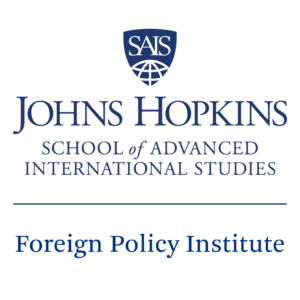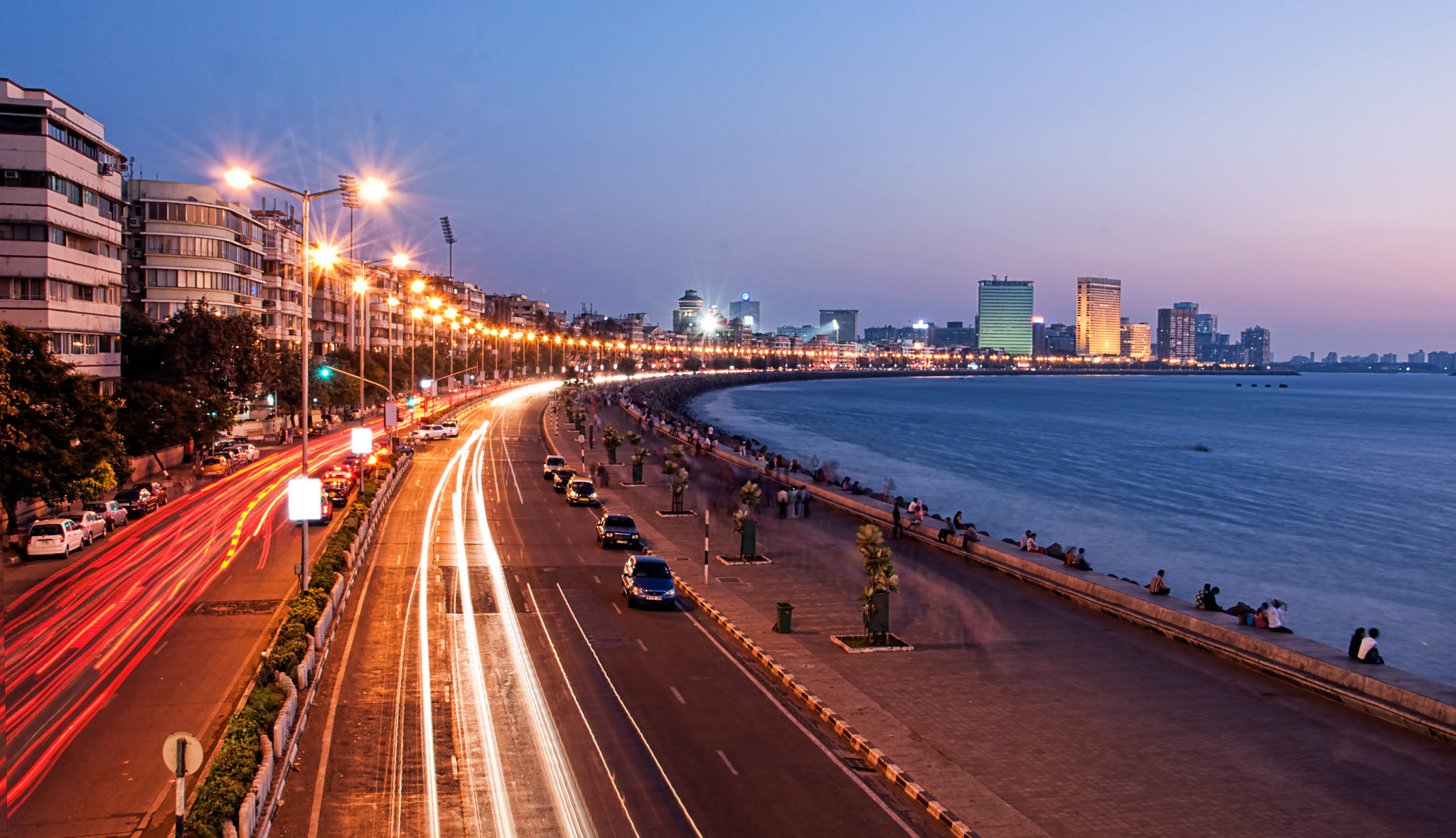
Indian Ocean Business Times Weekly – April 10
Top business stories from countries across the Indian Ocean region: Australia, Bangladesh, Comoros, India, Indonesia, Iran, Kenya, Madagascar, Malaysia, Mauritius, Mozambique, Oman, Pakistan, Seychelles, Singapore, Somalia, South Africa, Sri Lanka, Tanzania, Thailand, UAE and Yemen. Collectively, they account for 35% of the world’s population and nearly 20% of global GDP.
Pakistan/Capital Flight – “Over 79 per cent of all foreign investment in the country’s capital markets — including bonds and equities — has fled the country in the last 40 days. The State Bank of Pakistan’s (SBP) latest data issued on Thursday showed the pace of outflows from the country’s treasury bills, Pakistan Investment Bonds (PIBs) and equity markets has accelerated,” Dawn reports.
Pakistan/IMF – “Pakistan is going to get $1.4 billion from the International Monetary Fund (IMF) next week to boost its foreign exchange reserves and get some budgetary support in the wake of the economic slowdown due to the coronavirus pandemic. The government requested the IMF last month for a low-cost, fast-disbursing loan under the fund’s Rapid Financing Instrument (RFI) to deal with the adverse economic impact of COVID-19,” Financial Daily reports.
India/Coronavirus– “Despite India reporting nearly 200 COVID-19 deaths in last one month, the country’s death rate of about 3% is lower than the global rate, and also much lower than several European countries like the UK, Italy and Spain, according to some medical experts. India had reported its first COVID-19 death from Karnataka on 10 March. Suggesting that a relatively young Indian population may be one of the reasons for the low mortality rate due to the pandemic, experts have attributed the high number of fatalities in countries like Italy and Spain to their elderly population which are more susceptible to developing complications after contracting the infection,” LiveMint India reports.
India – “As many as 400 million Indians, including migrant workers and daily wage earners, are at risk of being pushed deeper into poverty because of the covid-19 pandemic, the International Labour Organization (ILO) said. The Geneva-based body’s warning comes at a time when the coronavirus outbreak continues to spread across India and a complete relaxation of the lockdown post April 14 looks bleak,” LiveMint India reports
Sri Lanka/Hambantota – “Sri Lanka’s Hambantota Port, run by China’s CM Ports group said it has stocked up on bunkering fuel to supplyto supply ships passing the island as the global shipping industry is hit by the fallout of Coronavirus. Bunkering operations are run with Chinese petroleum firm Sinopec,” EconomyNext reports.
India/Tycoons – “The only Indian tycoon whose net worth is unscathed as the deadly coronavirus roils markets worldwide can thank nation’s hoarders with millions scrambling to stock up on staples amid the world’s biggest isolation effort. The net worth of Radhakishan Damani, who controls Avenue Supermarts Ltd., has surged 5% this year to $10.2 billion, singling him out as the only billionaire with gains among the 12 richest Indians whose wealth is tracked by the Bloomberg Billionaires Index. Shares of Avenue Supermarts, which contribute nearly all of the wealth to Damani’s net worth, have advanced 18% this year,” Hindustan Times reports.
Bangladesh/IMF – “Bangladesh is seeking $700 million in financial backing from the International Monetary Fund after rolling out its biggest-ever stimulus package. The government hopes the move will prevent the coronavirus pandemic from ravaging its trademark macroeconomic stability,” Nikkei Asian Review reports.
Australia/N. Zealand – “Australia and neighboring New Zealand, almost unique among anglophone countries, have so far been successful in largely suppressing the spread of Covid-19 within their countries, and in particular, keeping deaths low. Australia, with a population of 25 million, has had just over 6,000 infections, and 50 deaths. New Zealand, a country of 5 million people, which closed its borders the day before Australia, has had 1,200 infections and so far only one death from Covid-19,” The Guardian reports.
Oil Markets – “Opec and non-Opec oil producing countries at a crucial ministerial meeting held via a video conference on Thursday agreed to slash oil output by a massive 10 million bpd until July, and a further eight million bpd cut through the end of 2020. And after much wrangling, Mexico – the lone nation resisting any deal during the marathon talks – finally agreed, thanks to intervention from US President Donald Trump, who “generously” agreed to cut American oil output by an additional 250,000 bpd to help Mexico contribute to global reductions, his Mexican counterpart said,” Dubai-based Khaleej Times reports.
World Trade – “The decline in world trade due to Covid-19 will likely exceed the trade slump brought by the global financial crisis of 2008‑09, the World Trade Organization (WTO) said on Wednesday, with merchandise trade expected to decline 13-32% in 2020 due to the Covid-19 pandemic. ‘These numbers are ugly – there is no getting around that,’ said WTO Director-General Roberto Azevêdh,” Economic Times of India reports.
Iran/IMF – “Iranian authorities have called on the International Monetary Fund (IMF) to accelerate processing Tehran’s request for an emergency loan which it requires for fighting a pandemic. The governor of the Central Bank of Iran (CBI) Abdolnaser Hemmati said on Thursday that the IMF is expected to consider Iran’s request for a $5 billion loan under its Rapid Financing Instrument (RFI), a mechanism which is available to all member countries facing an urgent balance of payments need,” Iran Daily reports.
Indonesia/Food Supply – “Food supply in Indonesia could be put at risk during the coronavirus pandemic as fewer farmworkers might be available to work the country’s rice fields while the government might also find it hard to import other staple food as exporting countries withhold supplies for domestic use, a local economic think tank has warned,” Jakarta Globe reports.
East Africa/Locusts – “The locust WhatsApp hotline has been pinging nonstop as farmers and herders across large swathes of rural Kenya send in video clips of massive swarms flying overhead, blocking the light of the sun like a Biblical plague. This infestation of desert locusts first arrived in East Africa last June, feeding on hundreds of thousands of hectares of crops and pastureland and chomping a path of destruction through at least eight countries (Kenya, Uganda, South Sudan, Ethiopia, Somalia, Eritrea, Djibouti and Sudan). Scientists say these devastating insects never left East Africa: in fact, favorable wet conditions due to above average rainfall this season means they are likely to achieve two generations of new breeding by June this year, increasing their population size up to 400 times,” Quartz Africa reports
Kenya/Safaricom – “Peter Ndegwa has started his tenure as Safaricom chief executive officer with a vote of confidence from investors after the company’s stock gained 1.7 per cent on his first day in office. A day after the telco closed its financial year that ends on March 31, Mr Ndegwa heads a company that is the heartbeat of trading at the Nairobi Securities Exchange (NSE) and which must keep re-inventing to maintain its position as East Africa’s most profitable company,” The East African reports.
Oil Market – “Oil market fundamentals have reached ‘horrifying’ levels following the spread of the coronavirus pandemic, with global storage capacity expected to be exhausted by May, Opec’s secretary-general told ministers at an emergency meeting on Thursday. ‘The supply and demand fundamentals are horrifying; the expected excess supply volumes on the market, particularly in the [second quarter of 2020], are beyond anything we have seen before,’ Mohammed Barkindo said in his opening remarks at a virtual conference of Opec and non-Opec producers,” Abu Dhabi-based The National reports.
Thailand – “Shutdowns from the pandemic could trigger a tsunami of job losses in Thailand especially for employees who don’t have a regular salary, low-paid workers and people without a written contract. The Joint Standing Committee on Commerce, Industry and Banking (JSCCIB) says that as much as 7 million workers could be out of a job by June because of shutdowns from the pandemic,” Thailand Business News reports.
Malaysia – “Growth in private consumption will likely drop sharply, due mainly to the movement control order (MCO), which was imposed since March 18 following the Covid-19 pandemic, BIMB Securities Research said. In a report issued on Friday, it said from a short-term point of view, flagging consumer sentiments due to the virus outbreak will weigh on private consumption,” Kuala Lumpur-based Star reports.
Sri Lanka/Reserves – “Sri Lanka’s gross official reserves were 7.5 billion US dollars (USD7,525.7mn) by the end of March, down from 7.9 billion US dollars in February, the latest Central Bank data showed. By the end of March, the foreign currency reserves were 7,119.1 million dollars while the reserve position in the IMF was 65.3 million dollars,” Lanka Business Online reports.
S. Africa/Eskom – “Debt-stricken power company Eskom told investors it does not need to approach the government for more support, even as a Covid-19-related national shutdown slashes revenue. The company needs to raise R89bn this year and R56bn of that will come from an existing state bailout, CEO Andre de Ruyter and CFO Calib Cassim said on the call, according to investors who listened to it,” South Africa’s Business Day reports.
S. Africa/Coronavirus – “South Africa’s president Cyril Ramaphosa and ministers will take a 33% pay cut for the next three months, and the money will be diverted towards social and economic relief measures to help the country weather the Covid-19 pandemic. Ramaphosa on Thursday said the country would extend its original 21-day national lockdown, instituted on Mar. 27, until the end of April,” Quartz Africa reports.
Seychelles/Coronavirus – “Seychelles will from midnight on Wednesday shut down non-essential services and restrict the movements of people for 21 days to prevent the spread of Covid-19. All shops including restaurants, take-away-food outlets will remain closed except grocery stores and pharmaceuticals the statement said.The announcement comes after a 26-year-old Seychellois man, who works as a ground handling staff at the international airport, tested positive for coronavirus on Monday, bringing the nation’s total cases to 11,” CGTN reports.
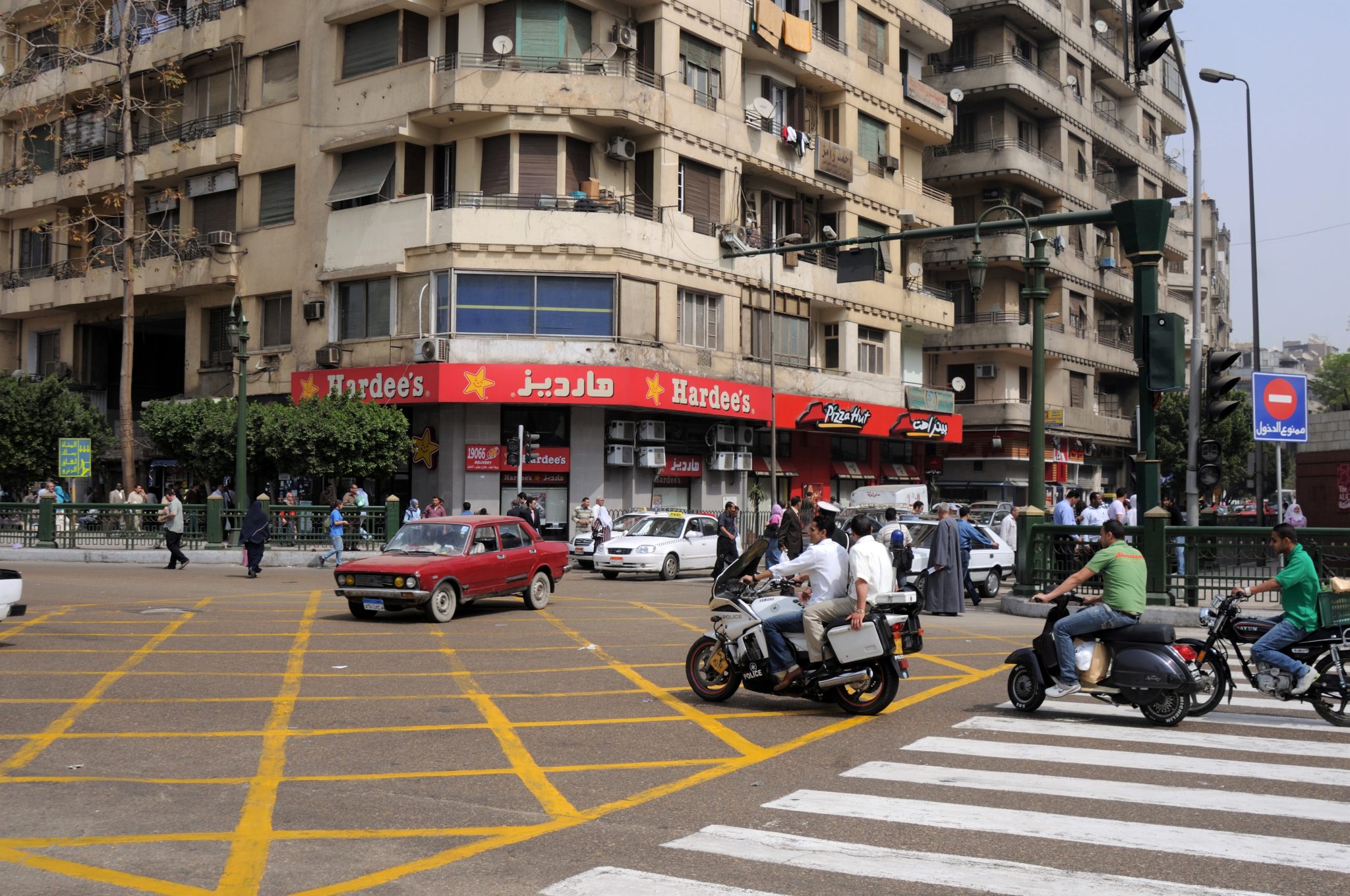
Middle East Business Telegraph Monitor – April 10
The top business/economic stories from the MENA region as reported in the regional press – April 10
MENA/Growth – “The Middle East and North Africa (MENA) is facing a 3.7 percent contraction in gross domestic product (GDP) this year because of twin hits from the coronavirus pandemic and the collapse of demand for oil, the World Bank is forecasting. The fall in GDP, which amounts to about $116 billion off the region’s economies, has accelerated from the 2.1 percent downturn the bank estimated just last month. In October 2019, the bank said Middle East economies would grow by 2.6 percent this year,” Arab News reports.
Oil Market – “Oil market fundamentals have reached ‘horrifying’ levels following the spread of the coronavirus pandemic, with global storage capacity expected to be exhausted by May, Opec’s secretary-general told ministers at an emergency meeting on Thursday. ‘The supply and demand fundamentals are horrifying; the expected excess supply volumes on the market, particularly in the [second quarter of 2020], are beyond anything we have seen before,’ Mohammed Barkindo said in his opening remarks at a virtual conference of Opec and non-Opec producers,” The National reports.
Oil/OPEC+ – “An agreement between Saudi Arabia and Russia for record oil-production cuts was endangered late as Mexico refused to participate in the curbs and left the meeting without approving the deal. The impasse, which came after more than 9 hours of talks via video link, cast doubt over a global effort to revive the oil market from a debilitating coronavirus-induced slump. The OPEC+ group won’t cut output without Mexico’s participation and doesn’t intend to meet again on Friday, instead focusing on talks at the G-20 gathering also scheduled that day,” Bloomberg/Gulf News reports.
UAE/NMC – “Just two years after its market value soared to more than $10 billion, NMC Health Plc was placed in administration by a London court as the troubled health-care provider succumbed to creditor demands. NMC, the Middle East’s largest hospital operator, will be run by administrators Alvarez & Marsal, Judge Sebastian Prentis said via videoconference Thursday. It’s a boost for state-owned Abu Dhabi Commercial Bank PJSC, which is owed $963 million. It had pushed for administration in a bid to get management to relinquish control,” Bloomberg/Arabian Business reports.
Region/IMF – “IMF funding aimed at helping countries hit by coronavirus will likely go to oil importing countries in the Middle East and North Africa (MENA) region – which include Egypt, Lebanon, Jordan, and Tunisia – as well as oil exporters Iran and Iraq, according to a new report from MUFG Bank. The International Monetary Fund (IMF) is moving to provide aid to counter the economic fallout of the coronavirus pandemic, which has shutdown economies across the world and caused a massive hit to global industries such as tourism and aviation. On top of the 70,000 people killed so far, the virus has necessitated lockdown measures, which are likely to cause a recession that will dwarf the 2008 financial crisis,” Al-Arabiya reports.
Iran/IMF – “Iranian authorities have called on the International Monetary Fund (IMF) to accelerate processing Tehran’s request for an emergency loan which it requires for fighting a pandemic. The governor of the Central Bank of Iran (CBI) Abdolnaser Hemmati said on Thursday that the IMF is expected to consider Iran’s request for a $5 billion loan under its Rapid Financing Instrument (RFI), a mechanism which is available to all member countries facing an urgent balance of payments need,” Iran Daily reports.
Lebanon/Inflation – “Inflation in Lebanon in the month of February 2020 alone reached 11.4 percent as the prices of basic commodities surged to alarming levels, according to the Consultation and Research Institute,” The Daily Star of Lebanon reports.
N. Africa – “The African Development Bank (AfDB) has set up a new $10 billion facility to help ameliorate the negative impacts of the coronavirus outbreak on the continent. In a statement, AfDB President Akinwumi Adesina said that the fund would include $5.5 billion for sovereign operations in the countries where the bank operates, and $3.1 billion for sovereign and regional operations in countries that benefit from the African Development Fund, the AfDB’s arm for fragile countries. An additional $1.35 billion will be for private sector operations,” Ahram Online reports.
Tunisia/Libya Logistics – “A cargo shipping line between Tunisia and Libya is to be launched in the second week of April, Tunisia’s Ministry of Transport and Logistics revealed. The service is for Tunisian goods destined for Libya but currently stalled due to the Coronavirus (Covid-19) curfews and border closures in both countries,” Libya Herald reports.
Saudi/Shipping – “Partial completion of International Maritime Industry’s (IMI) vast new shipyard, within the King Salman International Complex for Maritime Industries and Services in Ras Al Khair on Saudi Arabia’s east coast may not be due until late this year of early next, but this has not held up the start of operational activities, including newbuild rig, ship and repair projects with shareholders and third parties according to Julian Panter, IMI’s Vice President of Business Development,” Sea Trade Maritime News reports.
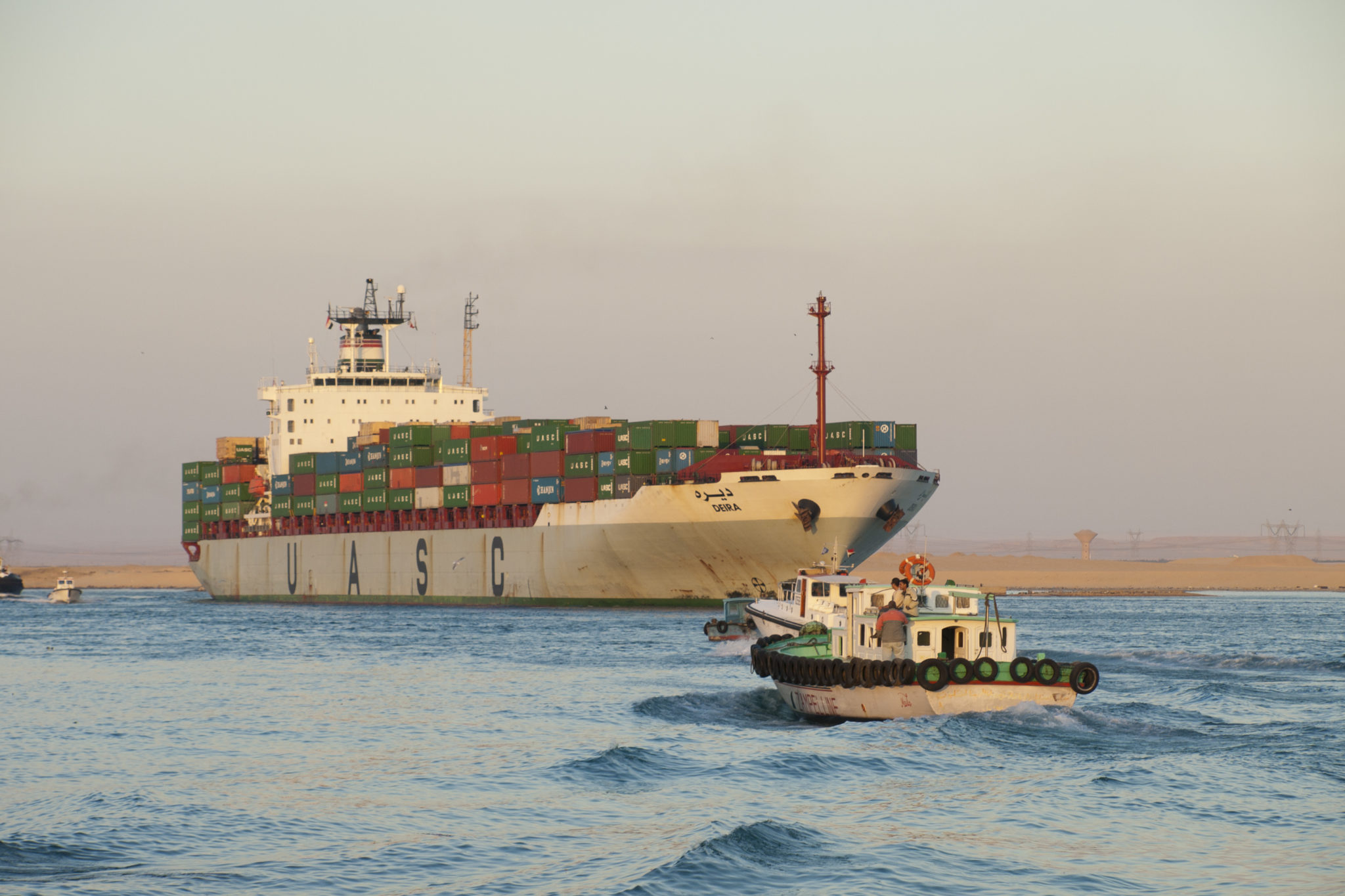
The Red Sea Economic Times – April 9
Business and Economic News from the Red Sea region and littoral states Egypt, Saudi Arabia, Sudan, Yemen, Eritrea, Djibouti from regional, international, and industry media – April 9, 2020
Suez Shipping – “The Suez Canal Authority (SCA) is introducing new and enhanced toll rebates for containerships and LNG carriers.For containerships on the backhaul from Northwest Europe, including the Med ports of Tangier and Algeciras transiting the Suez Canal and heading direct for southeast Asia calling Port Klang, Malaysia eastwards will be granted a 6% reduction in tolls,” Sea Trade Maritime News reports.
Yemen Cease-Fire – “A unilateral two-week ceasefire called by the Saudi-led coalition fighting in Yemen has come into effect. The coalition said it wanted to support UN efforts for a political solution and help stop coronavirus spread, though no cases have been reported in Yemen. UN Secretary General António Guterres welcomed the move,” BBC News reports.
Saudi Arabia Oil/OPEC+ – “Saudi Arabia and Russia agreed in principle Thursday on a deal to carry out the biggest organized oil-production cuts in decades, after a month-long feud and drop in due to the coronavirus crisis devastated oil prices. Prices shot higher ahead of the announcement before abruptly losing momentum and shedding most of their gains on a day of volatile trading. U.S. crude was up 3.4% at $25.95 a barrel and Brent crude oil was last up 3.2% at $33.91 a barrel, having earlier been up 10%,” The Wall Street Journal reports.
Egypt/Eritrea – “There have been unconfirmed reports that Egypt may be moving close to an agreement with Eritrea, with which ties have been warming in recent years, to host a new Egyptian naval base on Nora island. Cairo traditionally dismissed the idea of overseas regional bases owing to political sensitivities but has been investing in a new strategy to bolster its maritime power,” Arab Weekly reports.
Egypt/Reserves – “The Central Bank of Egypt (CBE) said that it has used US$5.4 billion from its foreign currency reserves during March due to the coronavirus crisis. The funds went to partially cover foreign portfolio investment outflows through the CBE’s foreign exchange repatriation mechanism, to accommodate for the domestic market’s foreign currency needs to import strategic goods, and for the repayment of external debt service obligations,” Egypt Independent reports.
Sudan Dam Diplomacy – “The Sudanese Minister of Irrigation and Water Resources Yasser Abbas said on Tuesday that although he expects negotiations over the Grand Ethiopian Renaissance Dam (GERD) to resume soon in Washington, DC, he has ruled out the possibility that the government of Sudan will play the role of intermediary with regard to the dispute between Egypt and Ethiopia over the filling and operations of the dam. Abbas explained that since Sudan is a party to the negotiations, and participating in order to preserve its interests, it cannot possibly be neutral or act as a mediator between the other two parties,” Egypt Independent reports.
Sudan – “Sudanese authorities on Wednesday announced a rise in the price of bread in the capital Khartoum, nearly a year after the fall of President Omar Al-Bashir. A tripling of the price of bread had been the trigger for street protests against Bashir in December 2018 — demonstrations that went on for months until the army deposed the longtime ruler on April 11 last year,” Arab News reports.
Shipping – “Saudi Ports Authority (Mawani) announced the launch of a new shipping line connecting the Kingdom of Saudi Arabia with East African countries through the shipping line “CMA CGM”, the world’s leading company in shipping services. It is also the first container shipping-line to reach King Fahd Industrial Port in Yanbu, on the Red Sea coast, which contributes to enhancing the movement of exports and imports to and from Yanbu,” Asharq Al-Awsat reports.
Saudi/Aviation – “British architect firm Foster + Partners has been awarded a design contract for Red Sea International Airport in Saudi Arabia. The airport is set to serve one million passengers by 2030, and is part of the country’s ‘Red Sea Project’ which aims to create a new luxury tourism destination in the coming years. Foster + Partners talk about what they aim to achieve in this project, the unique considerations involved with developing a project in this region,” Airport Technology reports.
Djibouti/Coronavirus – “Djibouti on Thursday confirmed the first coronavirus fatality in the country. The Health Ministry said in a statement on Twitter that a patient who was suffering from heart issues contracted the virus at a hospital, and died late Wednesday after one week in intensive care. As of Wednesday evening, Djibouti recorded 135 coronavirus cases, including 25 recoveries, according to the official Djibouti news agency,” Anadolu Agency reports.
Environment – “As seas warm and acidify with climate change, corals worldwide are bleaching – but in the north of the Red Sea there is a ray, or rather reef, of hope,” Future Planet BBC reports.
Eco-tourism – “Most colours disappear the deeper you go, but even 15 metres below the surface, Egypt’s Red Sea was an artist’s palette of electrifying Pantones. Soft corals and writhing anemones popped with vibrant hues, and clouds of Calippo-orange anthias fish were testimony to a healthy reef. It’s a rare picture of positivity on our ailing blue planet, and one painted by the very absence of human hand,” Travel Weekly reports.
Djibouti/Film – “If you’re having a tough time recalling the last movie you watched from Djibouti, it’s likely because you have never watched one before. With an almost non-existent film industry in the country, Lula Ali Ismaïl, tells a beautiful coming of age story of three young female Djiboutian teenagers at the cusp of womanhood. Dhalinyaro offers a never-before-seen view of Djibouti City as a stunning, dynamic city that blends modernity and tradition—a city in which the youth, like all youth everywhere, struggle to decide what their futures will look like. It’s a beautiful story of friendship, family, dreams and love from a female filmmaker who wants to tell a “universal story of youth,” but set in the country she loves—Djibouti,” Okay Africa reports.
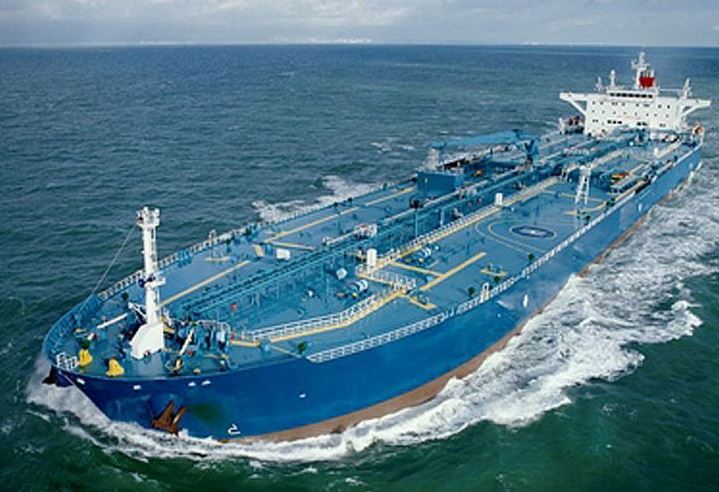
Middle East Business Telegraph Monitor – April 9
The top business/economic stories from the MENA region as reported in the regional press – April 9
Oil/OPEC+ – “Top oil producers meeting later Thursday intend to cut production by between 10 and 15 million barrels per day, Kuwait’s Oil Minister Khaled al-Fadhel reportedly said. The talks between OPEC and other major producers come as oil languishes at near-two decade lows, with Russia and Saudi Arabia’s price war compounding slack demand caused by the coronavirus pandemic,” Arabian Business reports.
Lebanon/Debt – “Lebanon requires net external financing of $10 billion-$15 billion over the next five years to help it through its financial crisis, according to a draft government plan seen by Reuters. The draft plan, which is being discussed by the cabinet, marks the most comprehensive blueprint yet on tackling the crisis. In it, the plan is described as a “good basis” in case of negotiations with the IMF,” Reuters/Al-Bawaba reports.
Saudi/PIF – “Saudi Arabia’s sovereign wealth fund has built up stakes in European oil firms, including about $200 million in Equinor ASA, as the kingdom navigates the coronavirus pandemic and plummeting crude prices. The Public Investment Fund amassed shares in Norway’s largest producer mostly through the open market last week. But it’s unclear exactly when the fund bought the holding or if it’s still buying.,” Bloomberg/Gulf News reports.
UAE/NMC – “The executive chairman of NMC Health, Faisal Belhoul, called for the administration process of the UAE’s biggest healthcare company to be conducted in an expedited manner with the goal of stabilising the company. NMC Health was placed into administration at a High Court ruling in London on Thursday following an application from Abu Dhabi Commercial Bank, the company’s biggest creditor which is owed $981m (Dh3.6bn) from the company. Joint administrators from Alvarez & Marsal were appointed to handle the company’s affairs,” The National reports.
Egypt/Reserves – “The Central Bank of Egypt (CBE) said that it has used US$5.4 billion from its foreign currency reserves during March due to the coronavirus crisis. The funds went to partially cover foreign portfolio investment outflows through the CBE’s foreign exchange repatriation mechanism, to accommodate for the domestic market’s foreign currency needs to import strategic goods, and for the repayment of external debt service obligations,” Egypt Independent reports.
Iran/Aviation – “Iranian airlines are estimated to have sustained 30,000 billion rials ($187 million) in losses by April 3, as coronavirus has halted flights within the country and abroad. Secretary of the Association of Iranian Airlines Maqsoud Asadi-Samani also said three airlines have grounded their entire fleet, Fars News Agency reported,” Financial Tribune reports.
Iraq/Politics – “Iraq’s president named intelligence chief Mustafa al-Kadhimi as prime minister-designate on Thursday, the third person tapped to lead the country in just 10 weeks as it struggles to replace a government that fell last year after months of deadly protests. Kadhimi was nominated by President Barham Salih, state television reported, shortly after the previous designated prime minister, Adnan al-Zurfi, announced he was withdrawing having failed to secure enough support to pass a government. Iraq, exhausted by decades of sanctions, war and political corruption now faces economic ruin, social unrest and a growing outbreak of the new coronavirus, all of which it must face with only a caretaker cabinet,” Baghdad Post reports.
Turkey/Growth – “The World Bank has projected Turkey’s economy to expand by 0.5% this year, 3 percentage points lower than the pre-coronavirus estimate. The uptick in the country’s gross domestic product (GDP) is expected to be supported by “strong” government stimulus, the bank said in its Spring 2020 Economic Update for Europe and Central Asia late Wednesday,” Daily Sabah reports.
Morocco – “The European Investment Bank Group announced its financial support for the private sector in Morocco, notably through its credit lines with Moroccan financial institutions amounting to €440 million. The loan is intended to assist Morocco in addressing the impact of Covid-19 on the economy,” Morocco World News reports.
Tunisia/Covid-19 – “Tunisia’s parliament on Saturday ceded some powers to the North African country’s government for two months to help it handle the coronavirus crisis and the expected economic fallout, reported Reuters. The decision, backed by all political parties, will allow Prime Minister Elyes Fakhfakh’s government to issue decrees, strike purchasing agreements and seek finance without consulting parliament. Tunisia has 495 confirmed cases of the coronavirus, including 18 deaths, and has imposed a national lockdown until April 19 to slow its spread,” Middle East Monitor/Reuters reports.
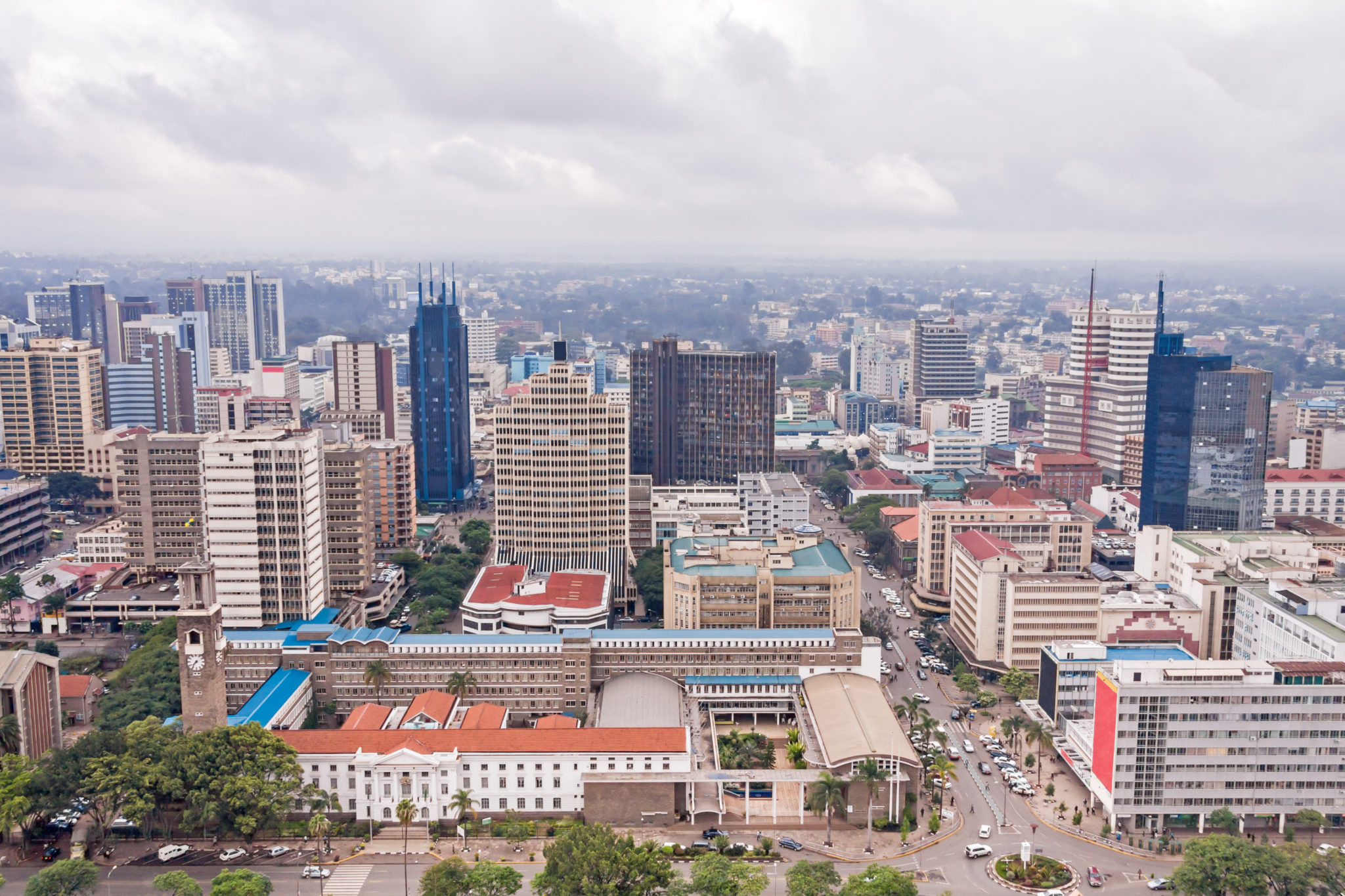
Africa Commercial Telegraph Weekly – April 8
Top business stories from Sub-Saharan Africa from the pages of the regional press – April 8
Nigeria/Shell – “International oil major, Royal Dutch Shell, and its subsidiaries paid the Federal Government of Nigeria over $5.6 billion which, at the exchange rate of N307/$1, comes to N1.7 trillion, the company disclosed in its sustainability report for 2019. This amount, which represents about 20 percent of the 2019 budget, comprises payments for fees, royalties, production entitlements and taxes. It is also the highest payment to any government in the 28 countries Shell disclosed,” Business Day reports.
Nigeria/IMF – “Nigeria’s Finance Minister disclosed yesterday that the country will seek as much as $3.4 billion from the IMF to shore up its finances at a time the coronavirus pandemic is taking a toll on economies globally, especially oil producers,” Business Day reports.
Ethiopia/Liberia – “Ethiopia, Africa’s second most populous nation, and Liberia declared states of emergency on Wednesday to help curb the spread of the new coronavirus, a day after cases on the continent surged past 10,000,” Reuters reports.
Ethiopia – “The desert locust, which has been damaging crops in some east African countries, is now moving from Somali to Ethiopia to hit the country once gain. ‘Currently hopper bands and a new generation of immature swarms are forming in the Oromia and Southern Nations, Nationalities, and Peoples’ (SNNP) regions, including the Rift Valley – the nation’s breadbasket. Desert locusts are currently active in 161 woredas (districts), down from 172 in February 2020,’ stated desert locust situation report of FAO for the month of April 2020,” New Business Ethiopia reports
S. Africa/Eskom – “Debt-stricken power company Eskom told investors it does not need to approach the government for more support, even as a Covid-19-related national shutdown slashes revenue. The company needs to raise R89bn this year and R56bn of that will come from an existing state bailout, CEO Andre de Ruyter and CFO Calib Cassim said on the call, according to investors who listened to it,” South Africa’s Business Day reports.
Ghana Economy – “As the coronavirus pandemic bites countries around the globe by grinding trade and other productive activities to a halt, Ghana’s economy is expected to experience its slowest growth in about four decades – making it the worst year since the historic 1983 economic retrogression,” Business and Financial Times reports.
Zambia/Glencore – “The Zambian government yesterday said mining giant Glencore’s move to shut its copper mines will not go ahead. The government says the company has declared ‘force majeure’ to shut its copper mines, which if allowed to go ahead, would leave at least 11 000 people jobless. Mines minister Richard Musukwa said the government would block this move,” The Namibian reports.
E. Africa/Logistics – “The logistics sector is reeling from the coronavirus pandemic as 31 countries in Africa have imposed full border closures, with the others allowing only cargo and basic goods into their countries. In East Africa, transporters are experiencing increased delays in ferrying cargo from the port of Mombasa due to delays in clearing after Customs officials, Kenya Ports Authority and Kenya Trade Network Agency (KenTrade)—the only state agencies mandated to facilitate cross-border movement of goods—reduced their workforce as a precautionary measure against contracting the virus,” The East African reports.
Kenya/Safaricom – “Peter Ndegwa has started his tenure as Safaricom chief executive officer with a vote of confidence from investors after the company’s stock gained 1.7 per cent on his first day in office. A day after the telco closed its financial year that ends on March 31, Mr Ndegwa heads a company that is the heartbeat of trading at the Nairobi Securities Exchange (NSE) and which must keep re-inventing to maintain its position as East Africa’s most profitable company,” The East African reports.
Liberia/Gas – “The Capital Vessel carrying 10MT ( 3,500,000 gals) of gasoline berth at the LPRC jetty Saturday, in what is seen as a major step toward easing consumers worries about an apparent gasoline shortage in Liberia. Mrs. Marie Urey-Coleman, Managing Director of the Liberia Petroleum Refining Company(LPRC) told FrontPageAfrica Saturday that additional vessels are scheduled to berth tomorrow and mid next week,” FrontPage Africa reports.

Middle East Business Telegraph Monitor – April 8
Leading business stories from the MENA region from the pages of the regional press
Oil/OPEC+ – “Oil producers will find it challenging to reach an agreement at a virtual meeting of Opec+ producers as deeper cuts for oil-revenue dependent economies could come at a high economic cost, analysts say. The Opec+ alliance headed by Saudi Arabia and Russia is set to meet on Thursday after US President Donald Trump lobbied them to consider cutting back 10 to 15 million barrels per day of output,” The National reports.
Saudi Arabia/Covid-19 – “Saudi Arabia’s health minister on Tuesday warned of a huge spike in coronavirus cases of up to 200,000 within weeks, state media reported. The warning comes a day after the kingdom extended the duration of daily curfews in multiple cities, including the capital Riyadh, to 24 hours in a bid to limit the spread of the deadly virus,” Arabian Business reports.
Private Equity/Tim Horton’s – “Dubai-based private equity firm Gateway Partners has acquired a 40 percent stake in the Gulf franchise of coffee and breakfast chain Tim Hortons, two sources familiar with the matter told Reuters. Gateway Partners, which is led by former Standard Chartered banker Viswanathan Shankar, paid about $50 million for the holding, the sources, who declined to be named, said,” Reuters/Arab News reports.
Iran/Equities – “The benchmark Tehran Stock Exchange index managed to break above its all-time highs just before the Iranian fiscal year ended March 19. The annual total return reached a whopping 187%, registering the highest annual growth in the exchange’s existence. Interestingly, the equal-weighted index, the barometer applied to measure the performance of micro-size listed companies, rocketed up during the same period by 437%. This all occurred at the same time that the activity of firms faced macroeconomic risks due to major setbacks facing the overall Iranian economy,” Al-Monitor reports.
Iran/IMF Loan – “President Hassan Rouhani pressed harder on Wednesday for a $5 billion emergency IMF loan Iran has sought to fight the Middle East’s worst coronavirus outbreak, saying the Fund would be guilty of discrimination if it withholds the money. Rouhani also said some businesses will remain closed until further notice, after the authorities announced last week that they will begin to ease a shut-down order from April 11,” The Baghdad Post/Reuters reports.
Morocco/IMF – “Morocco is about to tap into a $3 billion precautionary liquidity line, offered by the IMF in 2018 to help the country face external shocks, Moroccan media reported,” The North Africa Post reports.
Kuwait – “Credit rating agency Fitch has affirmed Kuwait’s long-term foreign-currency Issuer Default Rating (IDR) at ‘AA’ with a stable outlook. ‘Kuwait’s key credit strengths are its exceptionally strong fiscal and external balance sheets. These are increasingly offset by Kuwait’s institutional paralysis and slow pace in addressing growing public finance challenges stemming from heavy oil dependence,’ it said in its report. Fitch estimated the foreign assets of the Kuwait Investment Authority (KIA) at around $529 billion at the end of the fiscal year ending March 2020 (FY19/20), accounting for the bulk of Kuwait’s sovereign net foreign asset position of 472% of GDP which is the highest of any Fitch-rated sovereign,” Al-Bawaba reports.
Egypt/Reserves – “Egypt’s net international reserves (NIR) dropped to $40,108 billion as of end of March, down from $45,510 billion at the end of February, according to Central Bank of Egypt (CBE) data released late Tuesday. The CBE attributed to decline to the unprecedented blow to global financial markets arising from the COVID-19 pandemic, which caused the sharpest portfolio flow reversal on record from emerging markets, including the Egyptian market,” ahramonline reports.
UAE/NMC – “NMC Health getting placed in administration by a UK court order would be the ‘worst-case scenario’ for the company’s future, according to the hospital operator’s Executive Chairman,” Gulf News reports.

Middle East Business Telegraph Monitor – April 7
MENA Business Telegraph Monitor – April 7
Oil/Jobs – “The jobs and livelihoods of some 300 million people are at risk in the current crisis in the global oil business, according to Fatih Birol, executive director of the International Energy Agency (IEA). Speaking exclusively to Arab News, Birol said the oil industry is going through ‘perhaps the worst time in its history, and this could have major implications for the global economy, financial markets, and even more for employment,'” Arab News reports.
Qatar/Gas – “Qatar Petroleum (QP) will postpone the start of production from its new gas facilities until 2025 following a delay in the bidding process, Minister of State for Energy Affairs H E Eng. Saad bin Sherida Al Kaabi, the President and CEO of QP, said. In an interview with Reuters, HE Al Kaabi underlined that Qatar Petroleum is pressing ahead with foreign as well as domestic expansion despite the global market turmoil caused by the coronavirus pandemic,” The Peninsula reports.
Egypt/Infrastructure – “North Sinai Governor Mohamed Shousha announced on Tuesday that construction of the largest desalination plant in Africa and the Middle East has started. The capacity of the first phase is 100,000 cubic meters daily, and that of the second and third phases is 300,000 cubic meters per day,” Egypt Today reports.
Dubai/Covid-19 – “The closure of all commercial activities in Dubai will continue until the end of the national disinfection programme on April 18, it was announced today. In a tweet, Dubai Economy said that exempted sectors will operate as usual,” Al Bawaba reports.
UAE/Taqa – “The board of Abu Dhabi National Energy Company (Taqa) gave the nod to a sale and purchase agreement for its asset swap deal with Abu Dhabi Power Corporation (ADPower) that will create a regional utilities champion. Taqa’s board also approved the issuance of a mandatory convertible bond to ADPower for the planned deal, it said in a statement to the Abu Dhabi Securities Exchange, where its shares trade. The energy firm has also recommended its shareholders to approve the deal at the annual general assembly due to be held on April 29,” The National reports.
UAE/Emaar – “Emaar chairman Mohamed Alabbar has hit back at claims that Emaar has suspended work on all major projects due to Covid-19, describing them as ‘nonsense being peddled by people in the media who have no sense.’ It follows a report by Reuters earlier today that Emaar had suspended work on all major projects including Dubai Creek Harbour due to the spread of the Covid-19 virus.Speaking to Arabian Business, Alabbar said: ‘This is not even speculation or rumour, it is total lies and nonsense. And I am astonished that in this time, when the whole world is on lockdown, people can come up with this kind of thing to damage us. I won’t allow it. Let’s be clear. There is no virus on any of our sites. There are no cases of Covid-19. None of our sites have stopped operating,'” Arabian Business reports.
Israel/Reserves – “Israel’s foreign exchange reserves at the end of March 2020 stood at $126.043 billion, down $5.215 billion from their record level at the end of February, the Bank of Israel reports. The reserves represent 31.9% of GDP, down from 33.2% at the end of February,” Globes reports
Lebanon/Wheat – “Lebanon’s government is considering importing wheat for the first time since 2014, weighing its dwindling supply of dollars against concerns that the coronavirus may threaten the nation’s food security. The Economy Ministry is studying a possible purchase of 80,000 tons of the grain, it said, without specifying the timing. A tender seeking offers from suppliers would require the cabinet’s approval,” Bloomberg/Daily Star of Lebanon report.

Charlie Lay: Demand Shocks and the Death of the Bull Market
I recently met Charlie Lay in November of 2019 at the CommerzBank Emerging Markets Macro Conference held in Dubai. Charlie is a Singapore-based senior economist and FX strategist at CommerzBank, one of Germany’s largest banks and its biggest player in trade finance globally (and that’s saying a lot given Germany’s export machine). As Charlie took the stage, a fellow attendee nudged me and said: “you’ll like this guy.” He was right.
Charlie regaled the attendees with a sharp and humorous presentation on China, broader Asia, and the global economy peppered with pop culture references from music and the movies. Beyond the laughs, it was obvious that Charlie knew Asian markets and their intersection with the global economy very well. I gave Charlie a call in Singapore on March 21 to talk through this Covid-19 moment, and trade thoughts on what it all means for Asia, world markets and the broader global economy (and we had an email exchange with minor updates on April 6). Here are some excerpts of his thoughts, edited for brevity.
Supply Shocks vs Demand Shocks
Let’s go back to 2018 – the start of the trade war. That was the beginning of the supply shock which caused people to rethink the global supply chain. Firms began to think: maybe it’s not such a wise idea to put all the production in one location. We saw a glimpse of this in 2011 with Fukushima, but that earthquake did not cause supply disruptions in the US. Rather, flooding in Thailand did. For example, Honda reduced production in the US and Europe because of a shortage of parts from Thailand. So, back then, we had a supply side shock.
Now, with coronavirus, we are seeing a huge demand side shock. In the last 12 months, the world has been in a manufacturing recession. We saw early signs of this in the US while the services sector was still holding up well. Employment growth in the US has been good. We’ve seen 2.2 million jobs per year since the financial crisis, since 2010. Now, we have a demand side shock that exactly hits the services sector. So, the very leg that has been holding up the US economy is in trouble. Financial markets are pricing in the risk of a full blown financial sector shock. That’s why you see a rush to dollars. There is a big scare now in the financial sector that there will be a shortage of dollars. The credit market is seizing up. There is no liquidity. Gold is being sold off. Bonds are being sold off. The world’s deepest and largest market, the Treasury market, has been swinging 50 basis points (we spoke on March 21, 2020).
In the bond market, you cannot find a bid. Fed restarted QE again. This is QE5. QE4 was the Repo market last September. The Fed is trying to desperately avoid a financial sector shock.
“The 11 year bull market is finally dead.”
Now, let’s go back 12 years. The Fed pumped liquidity into the system and there was a massive rally in financial assets. The rich got richer. Hence, the big theme about income inequality that accelerated and the rise of populism. So, in terms of markets: Is Covid 19 the last straw that broke the camel’s back? Are all of the excesses in the market coming to the fore? We have seen a huge build-up in credit and financial assets. Prices were overvalued. Bull markets can stay overvalued for some time, so they need something to recalibrate. Bull markets die from recessions or Federal Reserve interest rate hikes or geopolitical shocks. This time, it’s undone by a health crisis. The 11 year bull market is finally dead.
Main Street will get hit harder. The corporate sector will be hit, and SMEs will be hit most. What we are seeing now is a supply side shock, a demand shock, andthe Fed is desperately trying to avert a full blown financial crisis. However, there is also a health crisis hitting the economy. People are likely to be reluctant to go out and spend even when the all clear comes.
The Legacies and Scars of Covid-19
Every crisis leaves legacies and scars. In the case of Civid-19, the obvious scars are the human tragedy. What about markets? Let’s go back to the 2008 crisis. What happened?, Well, regulation on banks increased and banks pose less of a systemic risk now. For banks, their ability to leverage was restricted. Banks are basically not an issue going into this crisis. They are well-capitalized and not as levered because they are not allowed to do so.
What are the market/economic scars and legacies that will result from this crisis? First, I think we will see a continuation of the rethink of global supply chains. We will see more onshoring and near shoring. This may lead to higher costs of production and higher prices for the consumer. Second, perhaps governments will spend more on research and development, especially in the field of infectious diseases. Third, governments will spend more on healthcare. There will be many more legacies of this global pandemic when it’s all over.
China Economy and Fall-Out
Q1 growth will most likely be negative and even if we get a sharp rebound in the second half, we are unlikely to see more than 4% growth for the full year. The risks are clearly to the downside given that global demand is also hit. China’s major trading partners will in turn be hurt. Unlike 2008, China doesn’t have the luxury of a big bazooka stimulus. It will provide support, of course, by way of lower rates, cuts in RRR (reserve requirement ratios), speed-up infrastructure projects and the like, but it is likely to tread more cautiously this time, cognizant of containing leverage in the system.
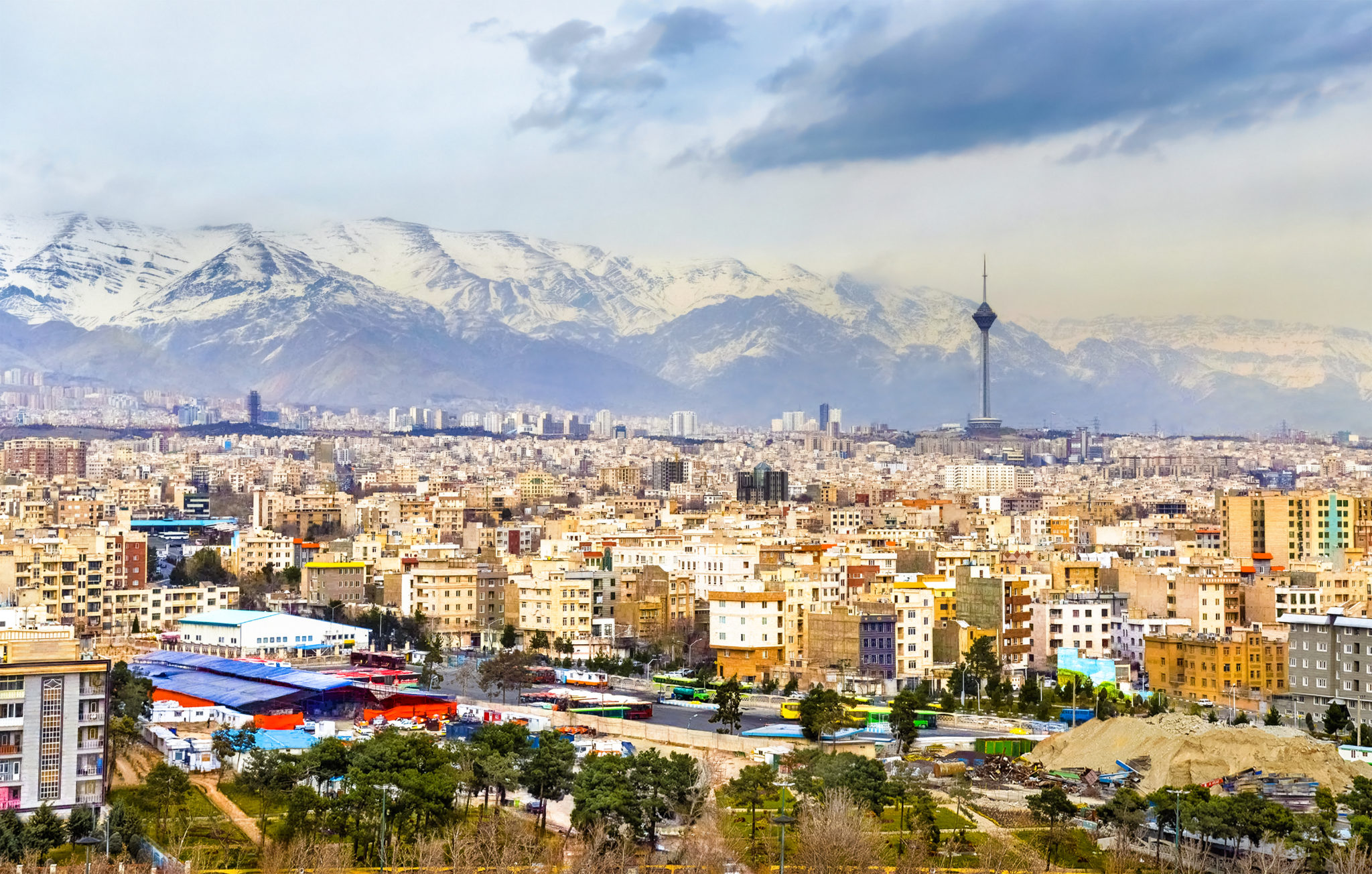
Middle East Business Telegraph Monitor – April 4-6
Middle East Business Telegraph Monitor – April 4-6
A round-up of business stories from the regional press
Iran/Business – “Iran plans to scale back restrictive measures adopted to minimize exposure to the novel coronavirus in business outlets under its new initiative dubbed Smart Distancing. As per the plan, low-risk businesses are scheduled to resume activities starting April 11 in all provinces, except Tehran that can follow suit on April 18, President.ir reported. High-risk workplaces, including swimming pools, sports centers or any place of gathering, will remain closed until further notice,” Financial Tribune reports.
Oil Price – “Gulf states backed Saudi Arabia’s proposal for an emergency Opec+ meeting that could include the US, the world’s largest producer, for the first time as oil prices continued to fall. The UAE, Opec’s third-largest producer, said it fully backed Riyadh’s calls for a meeting of the producers, which was tentatively set for Thursday,” The National reports.
Algeria/Oil – “Algeria, which chairs the presidency of the OPEC Conference, urged Sunday oil producing countries to seize the opportunity of the meeting scheduled on 9 April in order to agree on “an global, massive and immediate” production cut,” Algeria Press Service reports.
Dubai/Emirates – “Emirates airline is in talks to raise billions of dollars in loans, on top of Dubai’s state bailout for the world’s largest long-haul airline carrier, as the coronavirus pandemic grounds flights. The carrier is reaching out to local and international banks about the funding that will be in addition to the undisclosed amount of financial aid from the government, according to people with knowledge of the matter, who asked not to be identified because the information is private,” Bloomberg/Arabian Business reports.
Iraq/Halliburton Attacked – At least three rockets are reported to have hit near Halliburton‘s site in the Burjesia area of Basra early on Monday morning. It is understood that the incident caused no casualties or damage. It is the first attack to target US energy interests in Iraq in recent months,” Iraq Business News reports.
Saudi Arabia/Carnival Cruise – “The Public Investment Fund, Saudi Arabia’s sovereign-wealth fund, recently purchased a large stake in the embattled cruise lineCarnival. Public Investment disclosed that it owns 43.5 million Carnival shares (ticker: CCL) as of Monday in a form filed with the Securities and Exchange Commission. The fund’s investment amounts to an 8.2% stake in the cruise line. It is now Carnival’s third-largest shareholder, according to S&P Capital IQ,” Barron’s reports.
UAE Economy – “The Central Bank of the United Arab Emirates (CBUAE) said on Sunday it has doubled to $70 billion a stimulus package to support the Gulf state’s economy amid the coronavirus pandemic. ‘The aggregate value of all capital and liquidity measures adopted by the CBUAE since 14 March 2020 has reached 256 billion dirhams ($70 billion),’ the central bank said in a statement,” AFP/Jordan Times reports.
GCC Banks – “The GCC conventional and Islamic banks will see significantly reduced revenue and credit growth in 2020 mainly due to the sharp decline in oil prices, accelerated real-estate price corrections in some markets and drop in vital nonoil economic sectors, said a report. The sharp drop in oil prices and measures implemented by regional governments to contain transmission of the coronavirus (Covid-19) will take a toll on important sectors such as real estate, hospitality, and consumer-related, stated S&P Global Ratings in its report,” Gulf Daily News reports.
Turkey/Hazelnuts – “Turkey, the world’s biggest hazelnut supplier, yielded revenues of $1.65 billion from the nuts exports between September 2019 and this March, according to a regional trade group on April 2. The Black Sea Hazelnut and Products Exporters’ Association data showed that the seven months figure jumped 52 percent from the same period last year,” Hurriyet Daily News reports.
Egypt – “A number of Egyptian businessmen have submitted to the finance ministry several proposals on how to lessen the negative impact of the coronavirus outbreak on the economy, Finance Minister Mohamed Maait said. Maait said in a statement on Monday that the proposals are under consideration, adding that some of these proposals would require legislative amendments, and so the ministry will submit them to the Prime Minister Mustafa Madbouly,” AhramOnline reports.

New Books in Our Humble Reading Room
New Silk Road Monitor Memo
To: The good people of our humble Caravanserai
Re: Library Update
Dear Fellow Travelers,
On this day of 5 April, in the Gregorian Calendar of the Year 2020, we are enriched by the addition of seven new books to our humble, unworthy library. These luminaries bring light to our shelves.
The Wine of Wisdom: The Life, Poetry and Philosophy of Omar Khayyam, by Mehdi Aminrazavi
Syria’s Uprising and the Fracturing of the Levant, by Emile Hokayem
Indonesia, Etc: Exploring the Improbable Nation, by Elizabeth Pisani
The Dawn of Eurasia, by Bruno Macaes
Super Continent: The Logic of Eurasian Integration, by Kent Calder
A Modern Contagion: Imperialism and Public Health in Iran’s Age of Cholera, by Amir Afkhami
China’s Western Horizon: Beijing and the New Geopolitics of Eurasia, by Daniel Markey
Zahra’s Paradise, by Amir and Khalil
